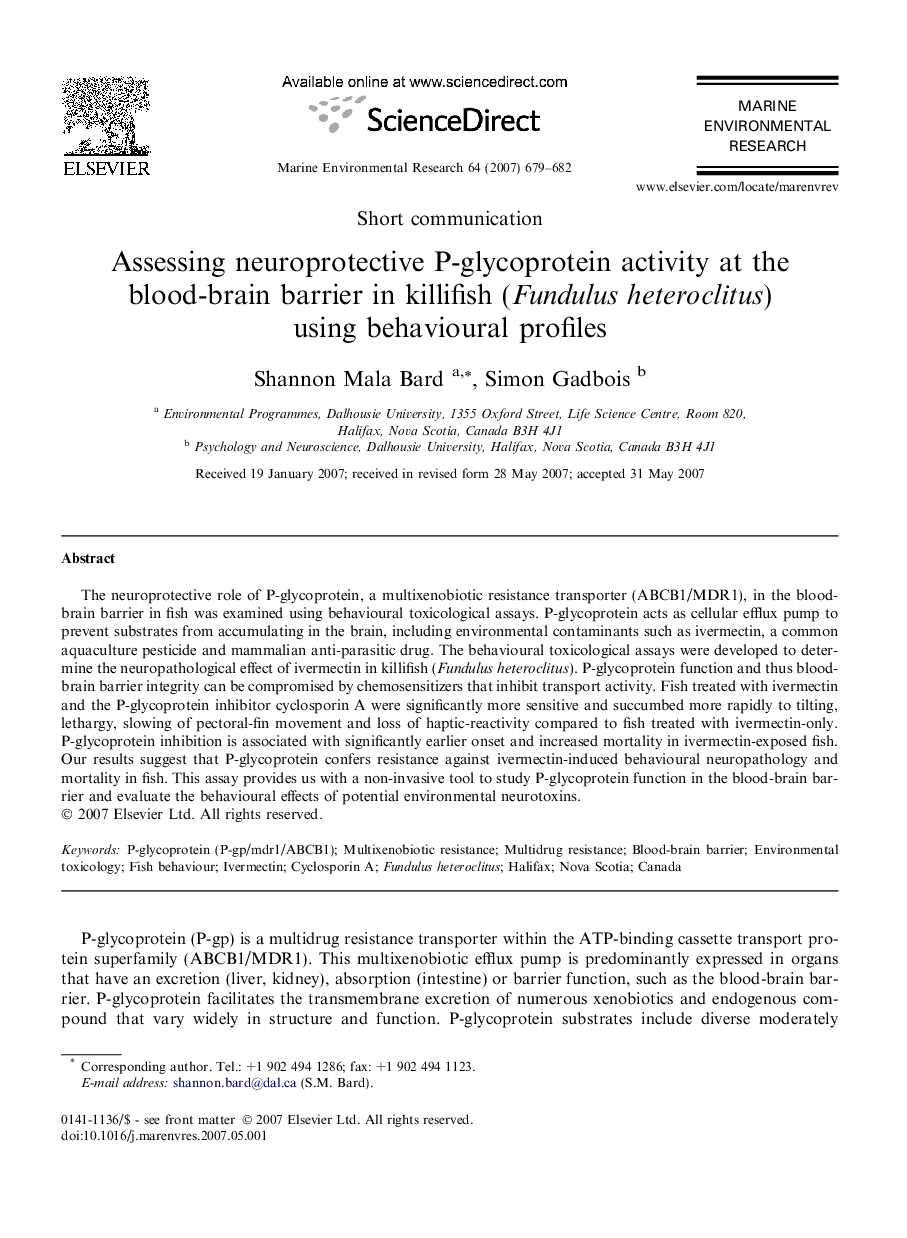| Article ID | Journal | Published Year | Pages | File Type |
|---|---|---|---|---|
| 4551797 | Marine Environmental Research | 2007 | 4 Pages |
The neuroprotective role of P-glycoprotein, a multixenobiotic resistance transporter (ABCB1/MDR1), in the blood-brain barrier in fish was examined using behavioural toxicological assays. P-glycoprotein acts as cellular efflux pump to prevent substrates from accumulating in the brain, including environmental contaminants such as ivermectin, a common aquaculture pesticide and mammalian anti-parasitic drug. The behavioural toxicological assays were developed to determine the neuropathological effect of ivermectin in killifish (Fundulus heteroclitus). P-glycoprotein function and thus blood-brain barrier integrity can be compromised by chemosensitizers that inhibit transport activity. Fish treated with ivermectin and the P-glycoprotein inhibitor cyclosporin A were significantly more sensitive and succumbed more rapidly to tilting, lethargy, slowing of pectoral-fin movement and loss of haptic-reactivity compared to fish treated with ivermectin-only. P-glycoprotein inhibition is associated with significantly earlier onset and increased mortality in ivermectin-exposed fish. Our results suggest that P-glycoprotein confers resistance against ivermectin-induced behavioural neuropathology and mortality in fish. This assay provides us with a non-invasive tool to study P-glycoprotein function in the blood-brain barrier and evaluate the behavioural effects of potential environmental neurotoxins.
